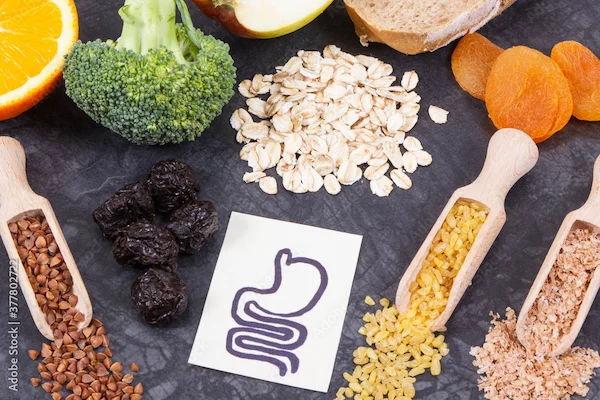How To Reduce Face Bloating?
Know how to reduce face bloating with diet, exercise, and lifestyle changes. Learn about effective remedies, sleep tips, and stress management techniques.

Written by Dr.Sonia Bhatt
Last updated on 3rd Jul, 2025

Have you ever looked in the mirror and noticed unexpected puffiness in your face? While occasional puffiness is normal, frequent or persistent bloating may signal underlying issues. Identifying the causes can help you take effective steps to reduce swelling and restore your natural facial contours.
Face bloating refers to noticeable swelling in areas such as your cheeks, jawline, and under your eyes. It is often caused by fluid retention, inflammation, or circulation issues. If your face appears puffy, especially in the morning or after consuming certain foods, temporary water retention may be the reason. However, ongoing bloating may require lifestyle adjustments or medical attention.
Several factors can make you prone to facial bloating. By recognising the triggers behind facial bloating, you can take targeted steps to reduce swelling and achieve a refreshed, healthier appearance.
Dietary Adjustments
What you eat plays a crucial role in managing face bloating. Certain foods can cause fluid retention and inflammation, making your face appear swollen, while others help reduce puffiness and promote a more sculpted look. Making simple dietary changes can help you control bloating and improve overall skin health.
1. Foods to Avoid
If you want to prevent face bloating, limiting the intake of certain foods can make a significant difference:
Salty and processed foods: High sodium content leads to water retention, making your face look puffy.
Alcohol: Dehydrates your body, causing fluid imbalance and swelling.
Refined carbohydrates: White bread, pastries, and sugary snacks contribute to inflammation and bloating.
Dairy products: If you are lactose intolerant, dairy can cause digestive issues and puffiness.
2. Foods That Help Reduce Bloating
Including the right foods in your diet can help flush out excess fluids and reduce facial swelling:
Water-rich fruits and vegetables: Cucumbers, watermelon, and celery help keep you hydrated and reduce water retention.
Potassium-rich foods: Bananas, avocados, and sweet potatoes help balance sodium levels and prevent bloating.
Herbal teas: Green tea and peppermint tea support digestion and act as natural diuretics.
Ginger and turmeric: Reduce inflammation and improve circulation, helping to minimise puffiness.
By making smart dietary choices, you can effectively manage face bloating and maintain a healthier, more refreshed appearance.
Lifestyle Modifications
Your daily habits play a major role in preventing and reducing face bloating. Proper hydration and regular physical activity help regulate fluid balance, improve circulation, and prevent excessive swelling. Simple lifestyle adjustments can make a noticeable difference in how your face looks and feels.
1. Importance of Hydration
If you do not drink enough water, your body holds onto excess fluids, leading to puffiness in your face. Staying well-hydrated helps flush out toxins, improve kidney function, and reduce water retention. Aim to drink at least 6–8 glasses of water daily, and include hydrating foods like cucumbers, watermelon, and citrus fruits in your diet. Reducing caffeine and alcohol intake also helps maintain proper hydration levels.
2. Benefits of Regular Exercise
Engaging in physical activity improves blood circulation and reduces fluid buildup, helping to prevent facial bloating. Cardio exercises such as walking, jogging, and cycling help flush out excess water and toxins through sweat. Strength training and facial yoga can also improve muscle tone, making your face appear more defined. If you stay active, you can naturally manage bloating while promoting overall health and well-being.
Home Remedies for Face Bloating
If you wake up with a puffy face, simple home remedies can help reduce swelling quickly. Using cold compresses and natural ingredients can improve circulation, reduce inflammation, and restore a more refreshed look.
1. Use of Cold Compresses
Applying a cold compress helps constrict blood vessels and reduce fluid retention in your face. You can:
Use ice cubes wrapped in a cloth and gently press them against swollen areas.
Apply chilled cucumber slices or cold green tea bags under your eyes to reduce puffiness.
Rinse your face with cold water in the morning to tighten the skin and minimise bloating.
2. Herbal and Natural Remedies
Certain natural ingredients help detoxify the body and prevent face bloating:
Aloe vera gel soothes inflammation and hydrates the skin.
Chamomile or dandelion tea acts as a natural diuretic, helping flush out excess water.
Turmeric and ginger reduce inflammation and improve blood circulation.
Facial massages with coconut or almond oil can improve lymphatic drainage, reducing puffiness naturally.
Incorporating these remedies into your routine can help manage face bloating and keep your skin looking fresh and revitalised.
Medical Treatments
If face bloating persists despite dietary and lifestyle changes, medical treatments may be necessary. Over-the-counter (OTC) medications can provide relief in some cases, but persistent or severe swelling may require professional evaluation.
1. OTC Medications
Certain medications help reduce facial bloating by addressing the underlying cause:
Antihistamines: If your bloating is due to allergies, OTC antihistamines like loratadine or cetirizine can reduce inflammation.
Diuretics: Water pills help flush out excess fluids, but they should only be used under medical supervision.
Anti-inflammatory medications: If facial swelling is linked to mild inflammation, nonsteroidal anti-inflammatory drugs (NSAIDs) like ibuprofen may provide relief.
2. When to Consult a Doctor?
If your face bloating is persistent, severe, or accompanied by other symptoms, seeking medical advice is essential. You should consult a doctor if:
The swelling is sudden or painful
You experience difficulty breathing or swallowing
Face bloating occurs frequently without an obvious cause
Other symptoms like fatigue, skin discoloration, or weight gain accompany the swelling
A doctor can evaluate underlying conditions such as thyroid disorders, kidney issues, or hormonal imbalances and recommend appropriate treatments.
Consult Top Doctor To Treat Face Bloating
Role of Salt and Sodium
Sodium is essential for maintaining fluid balance in your body. But you may experience face bloating if you consume it too much. If your diet is high in salt, your body holds onto extra fluids, making your face appear swollen and puffy. Reducing sodium intake can help minimise bloating and improve overall health.
1. Effects of Excess Sodium
When you consume excessive salt, your body retains water to balance sodium levels, leading to bloating. High sodium intake not only contributes to facial puffiness but can also increase blood pressure and strain your kidneys. Processed foods, fast food, and salty snacks are the biggest culprits behind excess sodium consumption.
2. Tips to Reduce Sodium Intake
If you want to prevent face bloating, making small adjustments to your diet can help regulate sodium levels:
Limit processed foods, canned soups, and fast food, as they contain hidden salt.
Choose fresh ingredients over pre-packaged meals to avoid unnecessary sodium.
Use herbs, lemon, and spices instead of salt to add flavour to your meals.
Drink plenty of water to flush out excess sodium and prevent fluid retention.
Read food labels carefully to monitor sodium content and make healthier choices.
By controlling your salt intake, you can prevent bloating and keep your face looking naturally refreshed.
Sleep and Face Bloating
Your sleep quality directly affects fluid balance and circulation in your body. Poor sleep can lead to water retention, making your face appear swollen in the morning. Establishing a proper sleep routine can help reduce bloating and keep your face looking fresh and revitalised.
1. Connection Between Sleep and Bloating
When you do not get enough sleep, your body produces more cortisol, a stress hormone that can cause inflammation and fluid retention. Sleeping in the wrong position, such as lying flat, can also contribute to fluid buildup in your face. Poor sleep affects circulation, making it harder for your body to flush out excess fluids overnight.
2. Tips for Better Sleep
Maintain a consistent sleep schedule, aiming for 7–9 hours per night.
Sleep with your head slightly elevated to prevent fluid from pooling in your face.
Avoid excessive caffeine and alcohol before bedtime, as they contribute to dehydration and bloating.
Stay hydrated throughout the day, but reduce water intake right before bed to avoid overnight water retention.
Practise relaxation techniques such as meditation or deep breathing to improve sleep quality.
You can naturally reduce morning puffiness and keep your face looking refreshed by prioritising good sleep habits.
Managing Stress
Stress may be a contributing factor if you frequently experience face bloating. Chronic stress triggers hormonal imbalances that lead to inflammation and fluid retention, making your face appear puffy. Managing stress effectively can help reduce facial swelling and improve overall well-being.
1. How Stress Can Affect Facial Swelling?
When you are stressed, your body produces higher levels of cortisol, a hormone that can cause fluid retention and bloating. Stress also disrupts sleep patterns, weakens digestion, and increases inflammation, all of which contribute to puffiness. If you often notice bloating after stressful situations, your body may be holding onto excess fluids as a response.
2. Stress Reduction Techniques
To manage stress and reduce bloating, try incorporating these practices into your routine:
Practise deep breathing exercises or meditation to calm your nervous system.
Engage in physical activities such as yoga, walking, or stretching to improve circulation.
Maintain a consistent sleep routine, as poor sleep can worsen stress-induced bloating.
Stay hydrated and eat a balanced diet to support your body’s natural detoxification process.
Spend time in nature, listen to music, or engage in hobbies to relax and de-stress.
You can prevent fluid retention and maintain a naturally refreshed appearance by managing stress effectively.
Conclusion
Face bloating can be frustrating but you can reduce puffiness and achieve a more refreshed appearance with the right approach. By making mindful dietary choices, staying hydrated, exercising regularly, and improving sleep quality, you can prevent fluid retention and keep your face looking healthy.
Simple adjustments such as reducing sodium intake, drinking enough water, and avoiding alcohol can significantly reduce face bloating. Incorporating exercise, facial massages, and cold compresses can also help manage puffiness. Addressing factors like poor sleep and high-stress levels further supports long-term improvements.
To maintain lasting results, consistency is key. If you stick to a balanced diet, regular hydration, quality sleep, and stress management techniques, you can prevent recurring facial bloating. Quick fixes may provide temporary relief, but long-term lifestyle habits will ensure a naturally sculpted and refreshed look. Making these small but effective changes can improve both your facial appearance and overall well-being.
Consult Top General Physician
Consult Top Doctor To Treat Face Bloating

Dr Summaiya Banu
General Practitioner
8 Years • MBBS
Hyderabad
Apollo 24|7 Clinic, Hyderabad
(175+ Patients)

Dr. Rajib Ghose
General Practitioner
25 Years • MBBS
East Midnapore
VIVEKANANDA SEBA SADAN, East Midnapore

Dr. Chethan T L
General Physician/ Internal Medicine Specialist
5 Years • MBBS, MD, DNB (General Medicine)
Bengaluru
Apollo Medical Center, Marathahalli, Bengaluru

Dr. Mohamed Azeem
General Physician/ Internal Medicine Specialist
2 Years • MBBS,MD(Internal Medicine) CCEBDM
Karaikudi
Apollo Hospitals Karaikudi, Karaikudi

Dr. Yogesh Valecha
General Physician/ Internal Medicine Specialist
20 Years • MBBS, MD
Noida
Apollo Hospitals Sector 26, Noida
(75+ Patients)
Consult Top General Physician

Dr Summaiya Banu
General Practitioner
8 Years • MBBS
Hyderabad
Apollo 24|7 Clinic, Hyderabad
(175+ Patients)

Dr. Rajib Ghose
General Practitioner
25 Years • MBBS
East Midnapore
VIVEKANANDA SEBA SADAN, East Midnapore

Dr. Chethan T L
General Physician/ Internal Medicine Specialist
5 Years • MBBS, MD, DNB (General Medicine)
Bengaluru
Apollo Medical Center, Marathahalli, Bengaluru

Dr. Mohamed Azeem
General Physician/ Internal Medicine Specialist
2 Years • MBBS,MD(Internal Medicine) CCEBDM
Karaikudi
Apollo Hospitals Karaikudi, Karaikudi

Dr. Yogesh Valecha
General Physician/ Internal Medicine Specialist
20 Years • MBBS, MD
Noida
Apollo Hospitals Sector 26, Noida
(75+ Patients)



